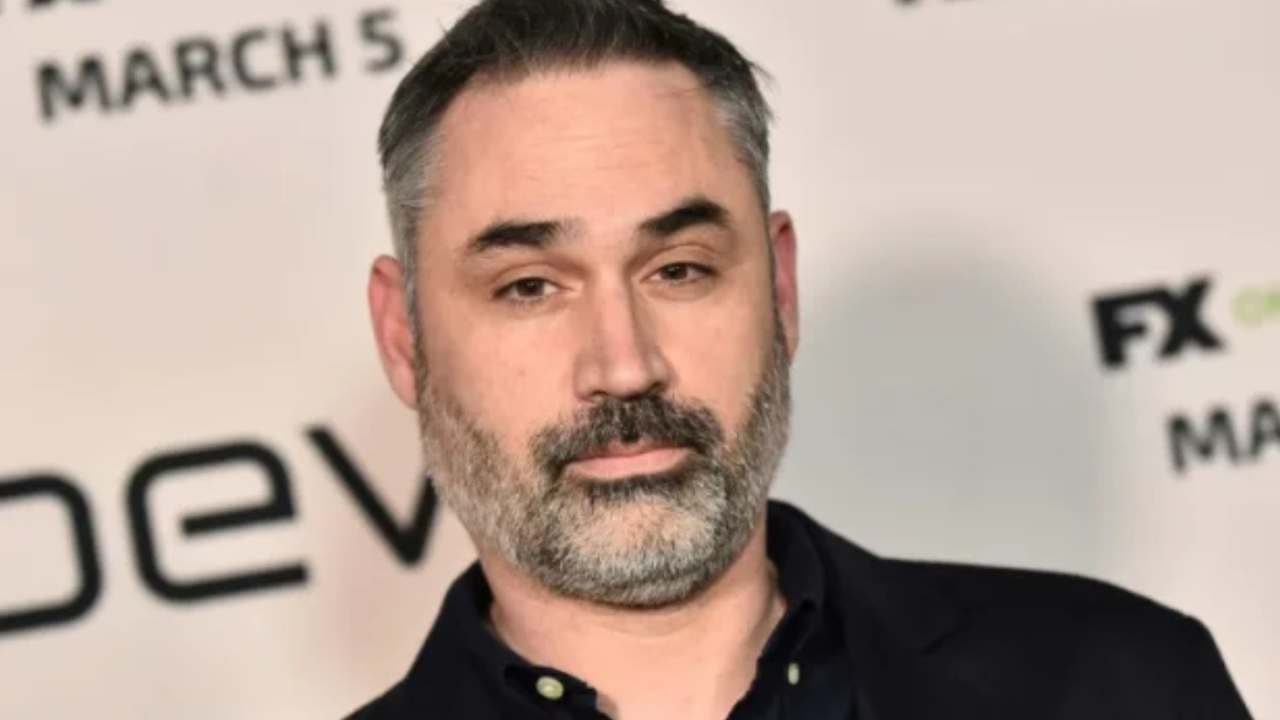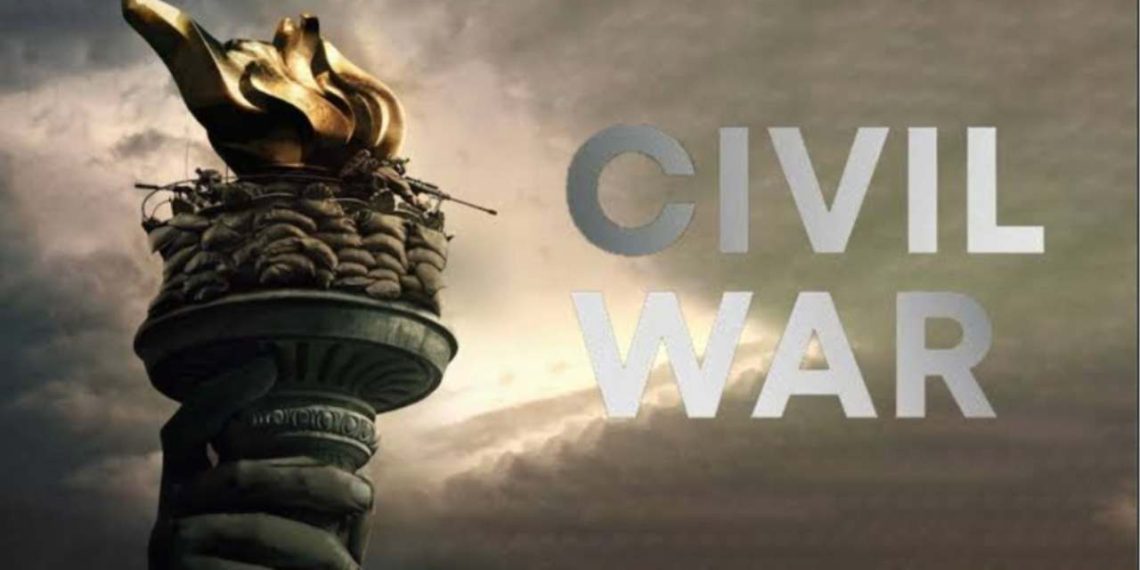Screenwriter and director Alex Garland, known for “Ex Machina” and “Annihilation,” recently delved into the pressing inquiries surrounding his upcoming A24 action-drama, “Civil War.”
At a panel during the South by Southwest Film & TV event, Garland addressed the questions hovering over the film: Why now? What messages does it convey? And why are Texas and California aligned as allies in the film’s fictional conflict?
The timing of “Civil War” has sparked curiosity, given its release amidst a politically charged election year.
President Biden has underscored the fragility of democracy, particularly in light of his opponent Donald Trump’s documented efforts to undermine electoral integrity.
“When I worked on Ex Machina, [which was] about AI, people sometimes use the word ‘prescient’ or ‘predictive’ [to describe the film] and I always feel slightly embarrassed when people say that because at the time I wrote it, there was [already] a huge debate happening about it,” Garland said when asked about the film’s timing.

“I think all of the topics in in [Civil War] have been a part of a huge public debate for years and years. These debates have been growing and growing in volume and awareness, but none of that is secret or unknown to almost anybody.
I thought that everybody understands these terms and, at that point, I just felt compelled to write about it. If you cast your mind back to when I wrote this in June four years ago, there was an election coming and we’re dealing with Covid — the same conversations as now. Identical. So that’s where it came from.”
Garland added that the film isn’t meant to specifically be a criticism of the United States.
“America’s divisions are echoed almost precisely in many countries around the world,” the British filmmaker said.
“In the case of America, there’s an extra danger given its power and importance in the world. America has an internal concept in its exceptionalism that means it feels it’s immune to some kinds of problems.
One of the things history shows us is that nobody is immune. Nobody is exceptional. And if we don’t apply rationality and decency and thoughtfulness to these problems, in any place, it can get out of control … I’m not trying to locate [these problems] to America, that would be factually wrong.
I can take you back home [to Britain] and can show you the same stuff happening in my country. But the implications here are much greater.”
Garland emphasized that despite America’s widespread access to firearms, it’s not necessarily a decisive factor for the risk of civil war, although guns play a significant role in the film.
He highlighted that civil conflict can erupt regardless of firearm availability, citing historical instances where civil wars ensued with weapons as rudimentary as machetes, resulting in immense casualties.
Passionately, Garland underscored that “Civil War” aims to initiate discourse about political polarization that demonizes opposing viewpoints.
By amplifying rhetoric to an ethical battleground, it becomes easier to perceive adversaries as inherently evil. Once individuals are morally condemned, their adversaries may rationalize extreme measures to thwart them.
“Why are we talking and not listening?” he asked.
“We’ve lost trust in the media and politicians. And some in the media are wonderful and some politicians are wonderful—on both sides of the divide. I have a political position and I have good friends on the other side of that political divide. Honestly, I’m not trying to be cute: What’s so hard about that? Why are we shutting [conversation] down? Left and right are ideological arguments about how to run a state. That’s all they are. They are not a right or wrong, or good and bad. It’s which do you think has greater efficacy? That’s it.
You try one, and if that doesn’t work out, you vote it out, and you try again a different way. That’s a process. But we’ve made it into ‘good and bad.’
We made it into a moral issue, and it’s fucking idiotic, and incredibly dangerous … I personally [blame] some of this on social media. There is a an interaction that exists human-to-human that floats away when it reaches a public forum.”
During the discussion, Garland addressed inquiries regarding the ambiguous political landscape depicted in his film.
“Civil War” envisions a near-future dystopia where the United States grapples with the authoritarian reign of a three-term president portrayed by Nick Offerman.
The narrative centers on a journalist played by Kirsten Dunst and her comrades navigating through a hostile and fragmented America.
However, the film sidesteps conventional red state/blue state divisions, with unexpected alliances such as Texas and California standing together.
The political backdrop of the conflict remains largely enigmatic, offering viewers scant insight into the events preceding the turmoil beyond what’s already hinted in the trailers.
Nonetheless, one discernible nod to current political discourse is the president’s decision to dismantle the FBI, reminiscent of calls to “defund” the Bureau, a stance associated with former President Trump.
“I personally think questions are answered,” Garland said.
“There is a fascist president who smashed the Constitution and attacked [American] citizens. And that is a very clear, answered statement. If you want to think about why Texas and California might be allied, and put aside their political differences, the answer would be implicit in that.
So I think answers are there but you have to step to it and not expect to be spoon fed these things. It makes assumptions about the audience.
“The warnings [about the country falling apart] all out there, but for some reason they don’t get any traction,” he added.
“[I wondered,] ‘Is it the polarization? Is it just that we are not able to absorb any information because of the position we’ve already taken?’ Hence, making a movie that pulls the polarization out of it.”
Audience reception to the film has been overwhelmingly positive, with viewers hailing it as a gripping, unsettling, and expertly crafted work of cinema, as evident from initial reactions from both audiences and critics.
Critics have awarded it an 83 percent rating on Rotten Tomatoes, showcasing a generally favorable reception.
However, the film’s release timing has sparked online discussions and debates. Prior to its premiere at SXSW, concerns were voiced regarding the potential implications of its portrayal of right-wing groups and political violence.
A reader on an American Civil War subreddit cautioned about the risk of misinterpretation by groups lacking media literacy or nuance.
They warned that while the film’s depiction of redneck extremists committing acts of terrorism may serve as clear criticism to some, it could inadvertently be misconstrued as a model for certain MAGA factions if not handled with care.
Others have said the film’s subject matter seems too close to home right now.
“The idea of another American civil war happening today actually keeps me up at night,” wrote another reader.
“This is a movie that I want to keep far away from. Even if it’s based on a political scenario so far removed from our own. I just do not want to entertain the notion of something so horrible.”
Although the notion of a contemporary civil war may appear implausible, a 2022 survey conducted revealed that 40 percent of Americans perceive the likelihood of a new civil conflict within the next decade.
More About The Film: Civil War
In addition to its compelling premise, “Civil War” boasts a stellar cast featuring Wagner Moura, Cailee Spaeny, Stephen McKinley Henderson, and Sonoya Mizuno. The film is scheduled for release in theaters and IMAX on April 12.
Not everyone knows, the film already debuted at South by Southwest on March 14, 2024, eliciting a positive response from viewers.
The plot centers on a team of journalists journeying through the United States amid the swiftly intensifying Second American Civil War, which has consumed the entire nation.
In the near future, a team of journalists embarks on a perilous journey across the United States amidst the rapidly escalating Second American Civil War, engulfing the nation in turmoil.
The conflict unfolds between the American government and the separatist “Western Forces,” spearheaded by Texas and California.
As the film chronicles, the journalists grapple with survival in a dystopian landscape where the government has morphed into a dictatorship, and partisan extremist militias perpetrate frequent war crimes. How badly are you excited for the release?





